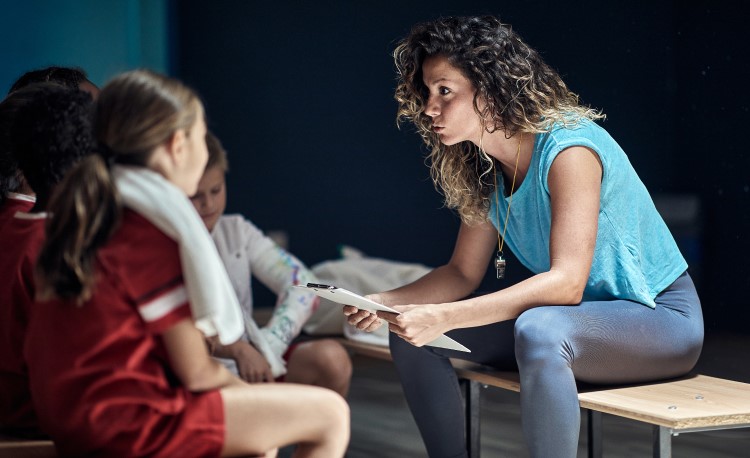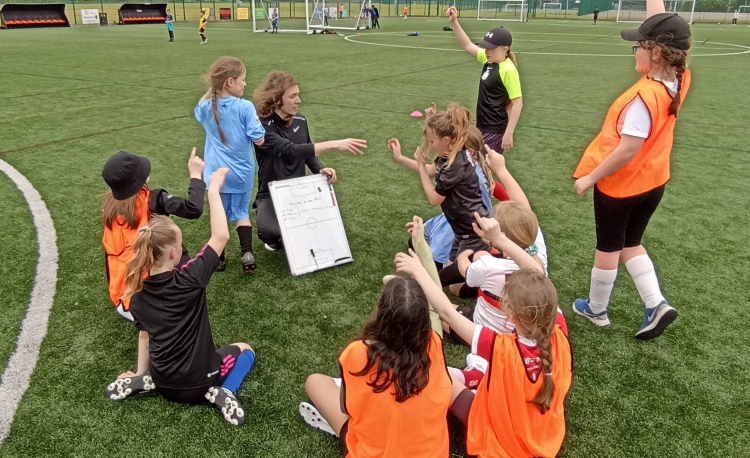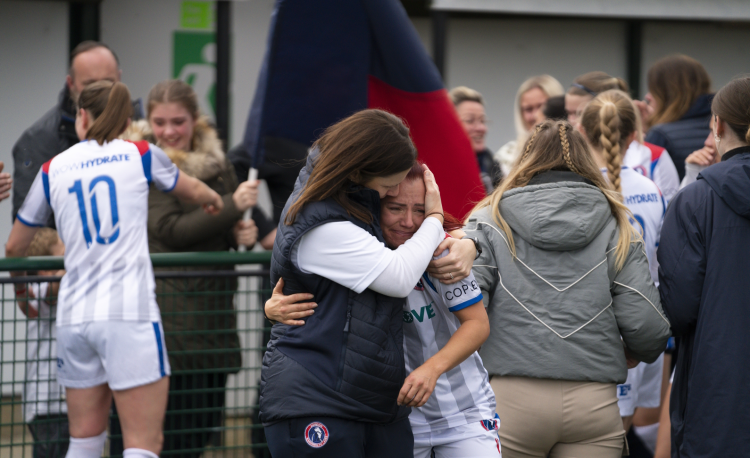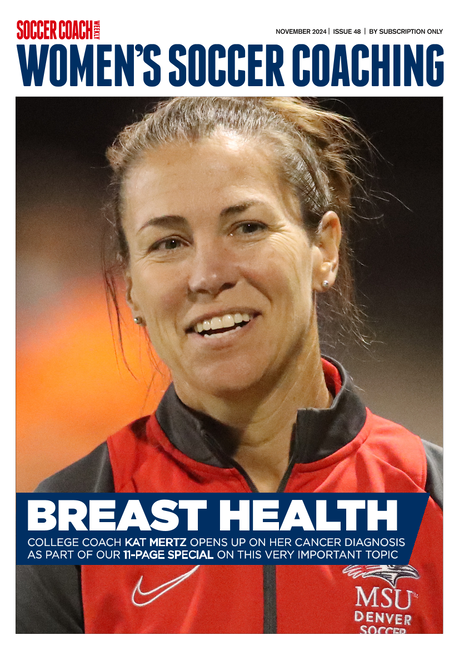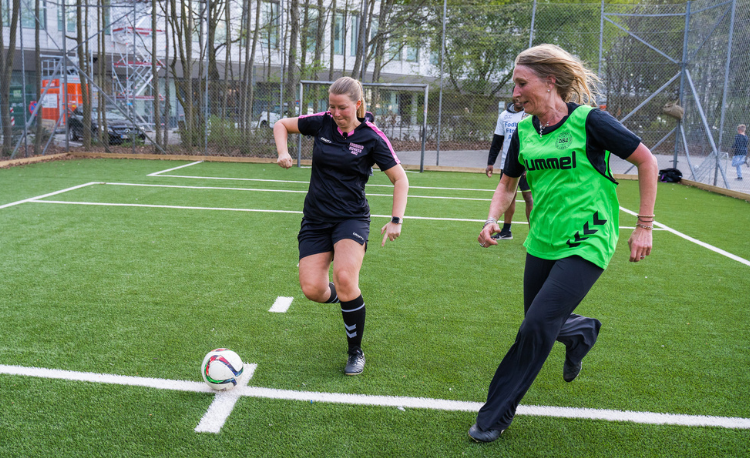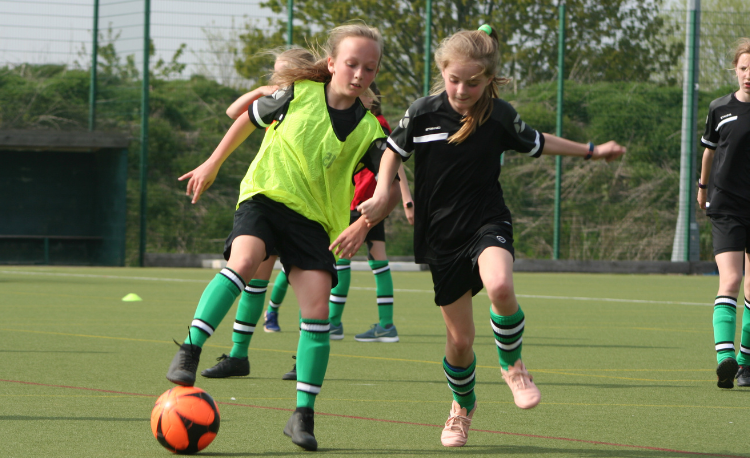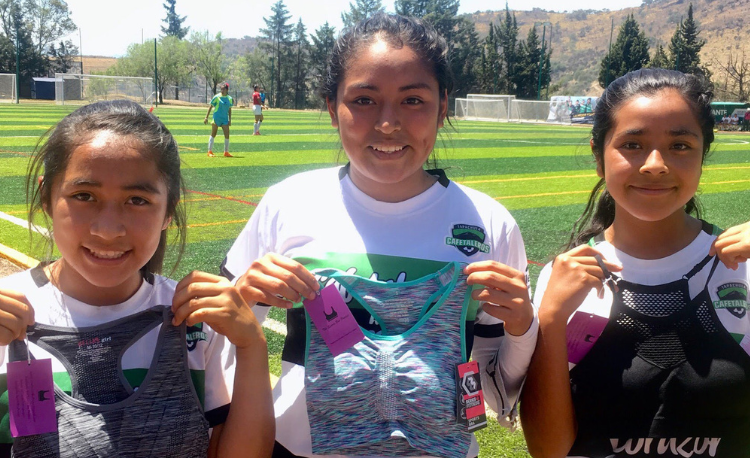You are viewing
1 of your 3 free articles
Using Inside Out 2 for lessons in player emotions
Inspiration for dealing with players can come from anywhere. Paul Robinson looks to hit film Inside Out 2 for lessons in young emotions – with no spoilers!
Coaching is more than just teaching skills and tactics – it is about understanding the complex emotions and challenges that your players face.
We all experience a range of emotions, from joy, to anger to sadness. This is the theme of the 2015 animated movie Inside Out, and its sequel, Inside Out 2, which came to movie theatres worldwide in June 2024.
Both movies take a delve into the intricate workings of the childhood mind, shedding light on how emotions shape the actions of young people as they grapple with growing up.
It’s also a reminder that, by acknowledging and tending to the emotional wellbeing of your players, you will unlock their full potential.
This article explores the valuable coaching lessons inspired by Inside Out 2, without revealing any spoilers and only drawing insights from its poignant scenes.
Lesson 1 – the match script
Inside Out 2 starts with the franchise’s lead character Riley, who is 13, playing ice hockey.
She is involved in many actions in this scene, and is guided by her self-belief. She appears to use a mantra that directs her decisions. In soccer terms, this illustrates the importance of having a match script.
A match script consists of two or three key objectives that a player aims to execute during the game.
One point should be related to their role and responsibilities, while another should focus on managing their mentality.
This simple tool helps your players ignore distractions and stay focused on what they can control. By following their match script, players will enhance their performance.
Encouraging your players to use action words, like ’alert’, ’alive’ or ’athletic’, or visualising an animal that embodies these qualities, serves as a powerful reminder of their goals and will help re-energise them during the game.
This technique helps players modify their body language and alter their emotional state on the pitch, ultimately improving performance.
Lesson 2 – encourage perseverance
In another scene, Riley’s determination comes through as she puts in extra practice to overcome her struggles.
This level of dedication is inspiring and underscores the importance of hard work in achieving success. While Riley’s story is fictional, there are real-life players who exhibit this kind of commitment.
As a coach, it is crucial to recognise and encourage your player’s perseverance and drive by acknowledging their progress.
Setting challenges for your players, and promising to revisit them in the next session, will encourage them to practice at home.
A simple phrase like "Your hard work is paying off, keep it up!’ motivates them to continue practising outside of training sessions.
Lesson 3 – be supportive
Riley displays perfectionist tendencies and overly punishes herself when she falls short of her own high standards. As coaches, we should strive to be understanding and empathetic towards our players.
Providing a supportive environment and letting them know it is okay to make mistakes is key.
When a player struggles emotionally after making a mistake, say something like: "I’ve noticed you are feeling upset, because...". This shows we are acknowledging their emotions, which will help them develop the skills to navigate their feelings in the future.
Also, it is important not to use punishments following mistakes. This creates a fear-based environment that hinders players from taking risks and exploring new possibilities.
Lesson 4 – prevent self-awareness
While walking, Riley becomes conscious of her arm movements. She then focuses on what to do with her arms and is critical of her failed attempts.
This is increased self-awareness, and in soccer terms would equate to a player consciously processing task execution.
They might get caught up in their own head monitoring a step-by-step procedure, which disrupts the automatic processing of well-learned motor skills.
This increases the chance of making mistakes, impairing performance and leading to heightened stress and worry – a detrimental mix of emotions that perpetuates a vicious cycle of increased self-awareness, as the player tries to rectify errors.
As coaches, we can help prevent this maladaptive state from occurring during a game by equipping our players with coping strategies that offer control. Incorporating familiar activities into warm-ups enables the player to self-regulate and maintain focus.
As the scene continues, Riley realises that she has zoned out of what is happening around her, and desperately tries to get involved in a bid to fit in.
The increased self-awareness has depleted her attention resources. In a soccer situation, a player would be unable to focus on the relevant task-related cues, which would have a detrimental impact on performance.
When a player finds themselves in this mental state during a game, it slows down their decision-making. Teach your players to recognise when this occurs and regain their concentration on their match script.
Simplifying their actions will help them to recover. Performing a few simple tasks correctly will boost their confidence and enable them to regain their focus.
Lesson 5 – squash the ANTs
Later on, Riley uses her imagination to prepare for every possible situation.
However, her initial focus on worst-case scenarios illustrates the negative impact this mindset has on her confidence.
A player consumed by negative thoughts will damage their own confidence and performance. Many people suffer from Automatic Negative Thoughts (ANTs), especially after making a few mistakes.
These thoughts manifest as self-doubt, and might be internalised as "I can’t do it" or "I can’t do anything right", cluttering the mind and impeding decision-making.
Teach your players that ANTs are normal and that they can be squashed with positive self-talk. Encourage them to challenge their inner dialogue if it is not helping their confidence and to change their narrative.
Techniques like replacing the ANT with a competing positive thought ("I made a great pass earlier, so I can do things right"), or turning them into a question ("How can I do this?"), shifts their mindset towards seeking solutions and regaining control.
Related Files
Lesson 6 – channel inner aggression
Riley’s initial self-belief that once guided her actions is replaced with a negative label she attaches to herself – ‘I’m not good enough’.
This new mantra, influencing her choices, puts immense pressure on her to attain a self-imposed target of scoring three goals on the ice. Riley gets some initial success, illustrating that striving for excellence sometimes helps motivate you to achieve.
By using inner aggression to drive positive and proactive actions, players become more competitive. But while anger can fuel physical intensity and mental alertness, it must be channelled appropriately.
Teaching players to recognise and redirect their emotions towards controllable factors will sustain their effort and performance.
Lesson 7 – process over result
Riley’s fixation on the end product (scoring goals) rather than the process (e.g., keeping alert) leads to a decline in her overall performance.
Desperate actions taken in pursuit of personal success jeopardises team dynamics. When players are too focused on individual achievements, they overlook opportunities to support their team-mates, ultimately harming their performance and the team’s success.
Encourage your players to set process-oriented targets. They have control over the process, but are unable to control the product (e.g., scoring or winning).
By focusing on the process, players can build consistent habits that will lead to achieving the outcome goal.
These targets help develop self-esteem and confidence, as they can start working towards the objective throughout the game and not waiting for critical moments.
Lesson 8 – focus on the next action
Later in this scene, we see Riley become frustrated. She moves from being in control to being hyper-aroused.
Most players will experience frustration at some point. This is evident when you see them waving their arms when they are irritated or making rash decisions.
Coaching your players to have a positive first action is crucial. When a player stops to complain, or they give away silly fouls when they feel aggrieved, they put their team-mates at a disadvantage.
Reinforcing the idea of focusing on the next action, rather than dwelling on a mistake, helps your players to be alert during the transition moments, giving your team an advantage.
Conclusion
Just like Riley, we are all shaped by our environment and our experiences.
Your players will change based on other events that are taking place in their lives. Never underestimate the power one person can have.
As the coach, you are in a privileged position, where you can make a significant impact. By cultivating a positive and supportive environment, and exemplifying the behaviours you wish to instil in your players, you empower them to learn how to regulate their emotions.
The movie Inside Out 2 offers insightful coaching lessons that will greatly benefit your players.
By equipping them with the tools to effectively manage their emotions, you will foster their growth and development.
Implementing the right strategies empowers your players to navigate challenges with resilience and determination, ultimately leading to success.
By incorporating these tips into your coaching, you will help your players reach their full potential.
Newsletter Sign Up
Newsletter Sign Up
Discover the simple way to become a more effective, more successful soccer coach
In a recent survey 89% of subscribers said Women's Soccer Coaching makes them more confident, 91% said Women's Soccer Coaching makes them a more effective coach and 93% said Women's Soccer Coaching makes them more inspired.
*includes 3 coaching manuals
Get Inspired
All the latest techniques and approaches
Women's Soccer Coaching offers proven and easy to use soccer drills, coaching sessions, practice plans, small-sided games, warm-ups, training tips and advice.
We've been at the cutting edge of soccer coaching since we launched Soccer Coach Weekly in 2007, creating resources for the grassroots youth coach, following best practice from around the world and insights from the professional game.
